Search results
Author(s):
Nicolas M Van Mieghem
,
Joost Daemen
Added:
1 year ago
Stay updated on the AHA 22 late-breaking data!
In this information packed episode of the View from the Thoraxcenter, hosts Dr Joost Daemen and Prof Nicolas Van Mieghem (Thoraxcenter, Erasmus MC, Rotterdam, NL) analyse the data from 10 late-breaking trials presented at the Scientific Sessions.
What are the key take-aways from AHA 22? What are the most promising findings? How should we understand…
View more
Treatment of the Diabetic Heart Failure Patient
Author(s):
Mikhail Kosiborod
,
Mark Petrie
Added:
3 years ago
Video Series
Author(s):
Ovidiu Chioncel
,
Sean P Collins
,
Stephen J Greene
,
et al
Added:
3 years ago
Hospitalisation is a critical event in the clinical course of heart failure (HF) and despite relatively rapid relief of symptoms, hospitalisation is followed by an increased risk of death and re-hospitalisation.1 While performance measures have been developed in the last few years with the intent of improving post-discharge outcomes, post-discharge mortality rates remain unchanged or have…
View more
Author(s):
Giuseppe Rosano
,
David Quek
,
Felipe Martínez
Added:
3 years ago
Heart failure (HF) is a shared chronic phase of many cardiac diseases, including ischaemic heart disease, chronic obstructive pulmonary disease and hypertension. It is characterised by structural or functional impairment of ventricular filling or ejection of blood from the heart.1–3 It is estimated that there are more than 37.7 million cases of HF globally and its prevalence is on the rise.2 HF…
View more
Author(s):
James L Januzzi
,
Harriette Van Spall
Added:
10 months ago
ESC-HFA 2023 - Late-Breaker host, Dr Harriette Van Spall (McMaster University, CA) is joined by Dr James Januzzi (Massachusetts General Hospital, US) to discuss the findings of the TRACER-HF trial.
Trientine-HCL is an oral chelation agent. Preclinical trials suggest that this promotes a reverse cardiac remodelling effect in HFrEF patients. 200 patients with New York Heart Association Class II or…
View more
Author(s):
Mikhail Kosiborod
Added:
1 year ago
In this short video we asked Dr Mikhail Kosiborod (Saint Luke’s Mid America Heart Institute, US) about the key heart failure highlights of 2022 and his thoughts on what comes next in HF treatment and research.
Recorded at Heart Failure 2022, Madrid.
View more
Inequity in Heart Failure Care
Author(s):
Onyedika Ilonze
,
Kendall Free
,
Khadijah Breathett
Added:
1 year ago
Article
Author(s):
Lars H Lund
Added:
1 year ago
In this short interview from HF 22, Prof Lars Lund (Karolinska Institute, Stockholm, SE) joins us on-site to discuss the outcomes of the Ghrelin-HF study. This was a placebo controlled, randomised trial that evaluated the effects of intravenous ghrelin in patients with heart failure with preserved ejection fraction (HFpEF).
Discussion Points:
Aims of This Study
Mechanism of Action
Patient…
View more
Neprilysin as a Biomarker
Author(s):
Noemi Pavo
,
Suriya Prausmüller
,
Philipp E Bartko
,
et al
Added:
3 years ago
Article
Author(s):
Michela Faggioni
,
Domenico G Della Rocca
,
Sanghamitra Mohanty
,
et al
Added:
4 years ago
Heart failure with reduced ejection fraction (HFrEF) and AF share several predisposing risk factors and often coexist in the same population.1 Although AF can be a marker of worsening heart failure (HF), it can also be a main driver of disease progression. The presence of AF in patients with HFrEF is associated with an increased risk of stroke, re-hospitalisations and all-cause death.2 Therefore,…
View more







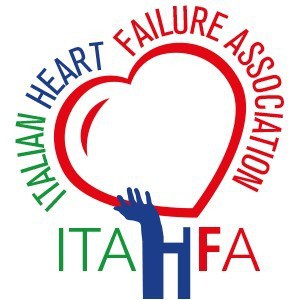
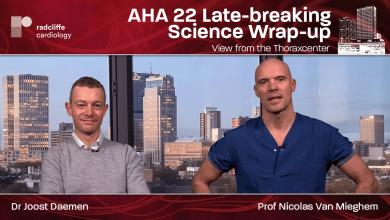
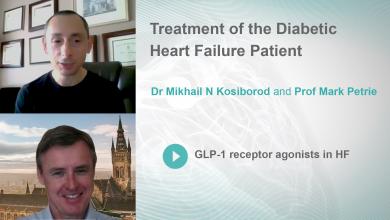

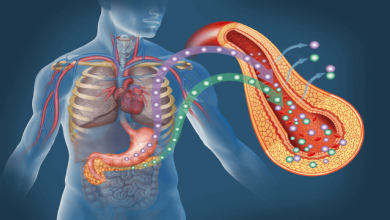
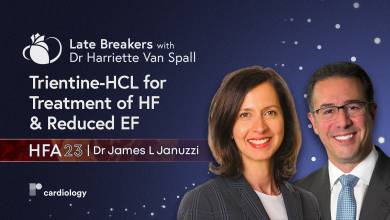
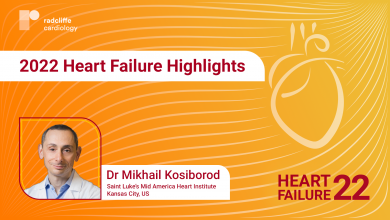
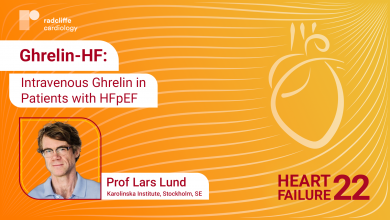


 « First
« First